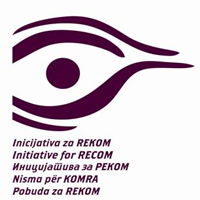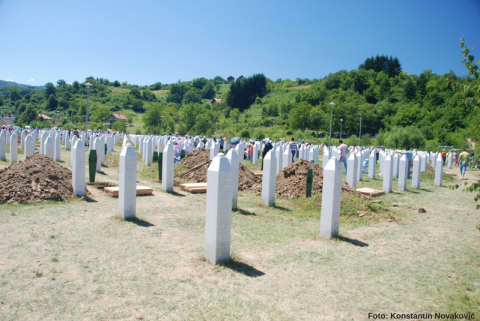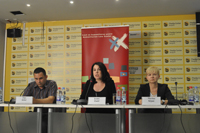ANNOUNCEMENT: Presentation of the Second Report on the Implementation of the National War Crimes Prosecution Strategy and the Policy Paper: Accounting for Missing Persons from the Armed Conflicts of the 1990s in the Former Yugoslavia

On Friday, 27 July 2018, the Humanitarian Law Center (HLC) will present the “Second Report on the Implementation of the National Strategy for the Prosecution of War Crimes” and the “Policy Paper: Accounting for Missing Persons from the Armed Conflicts of the 1990s in the Former Yugoslavia”. The presentation will take place at 11:00 in the Great Hall of the Media Centre (Terazije 3, 2nd Floor).
On 20 February 2016, the Government of the Republic of Serbia adopted the first National Strategy for the Prosecution of War Crimes 2016-2020. The HLC has been monitoring the implementation of the National Strategy since its adoption, in order to offer its independent assessment of and findings on the state of implementation of the National Strategy. The initial HLC report on the implementation of the National Strategy was released in December 2017.The second HLC report on the implementation of the National Strategy (Report) provides an overview of the implementation of activities in the period from 1 December 2017 to 01 June 2018, in eight areas covered by the National Strategy. The report points to key deficiencies and identifies recommendations for improving the situation in these areas.
The HLC will also present its “Policy Paper: Accounting for Missing Persons from the Armed Conflicts of the 1990s in the Former Yugoslavia”, which provides an overview of the current results and of the challenges that have arisen in the process of searching for persons who went missing during armed conflicts in the former Yugoslavia in the 1990s, and proposes recommendations for improving efficiency in this area.
Speakers:
- Jelena Krstic, Humanitarian Law Center
- Višnja Šijačić, Humanitarian Law Center
- Gordana Đikanović, journalist from Pristina, member of the Association of the Families of Kosovo and Metohija Victims
- Matthew Holliday, International Commission on Missing Persons (TBC)
Simultaneous interpretation into English will be provided.














 The Hague Tribunal and domestic courts have sentenced 45 people to 699 years in prison – plus three life sentences – for genocide, crimes against humanity and other offences against Bosniaks from Srebrenica in July 1995.
The Hague Tribunal and domestic courts have sentenced 45 people to 699 years in prison – plus three life sentences – for genocide, crimes against humanity and other offences against Bosniaks from Srebrenica in July 1995.
